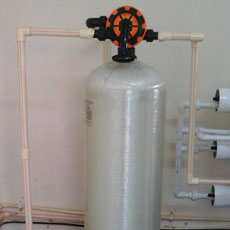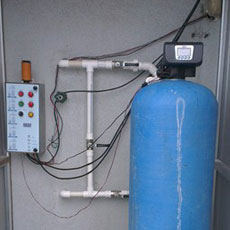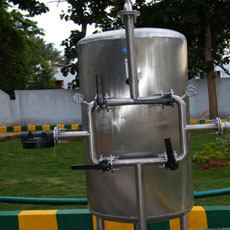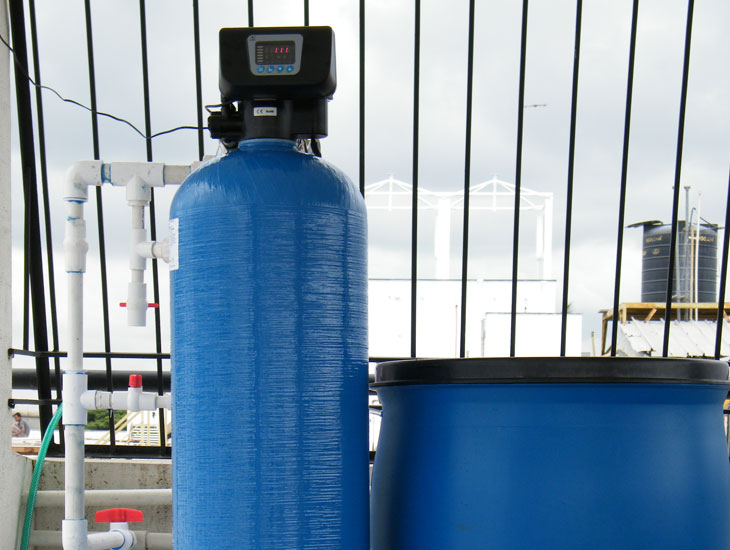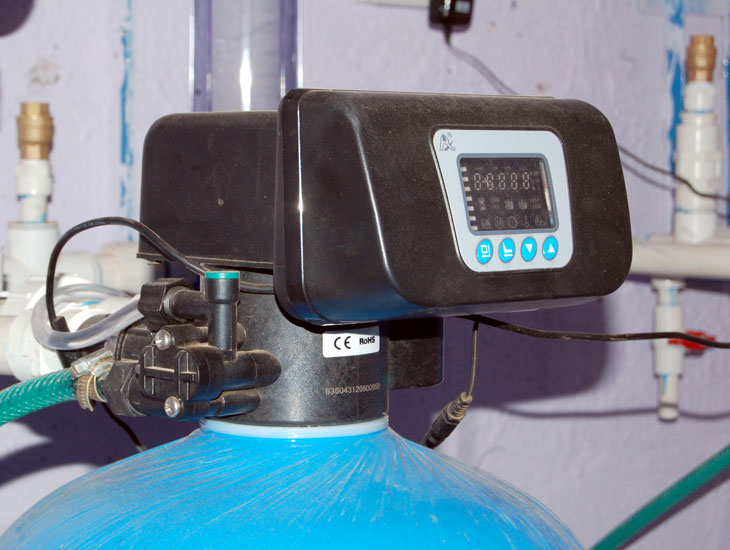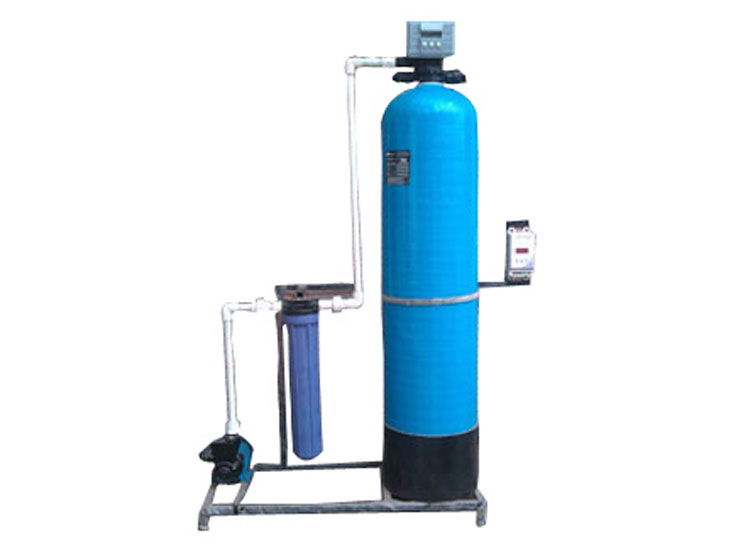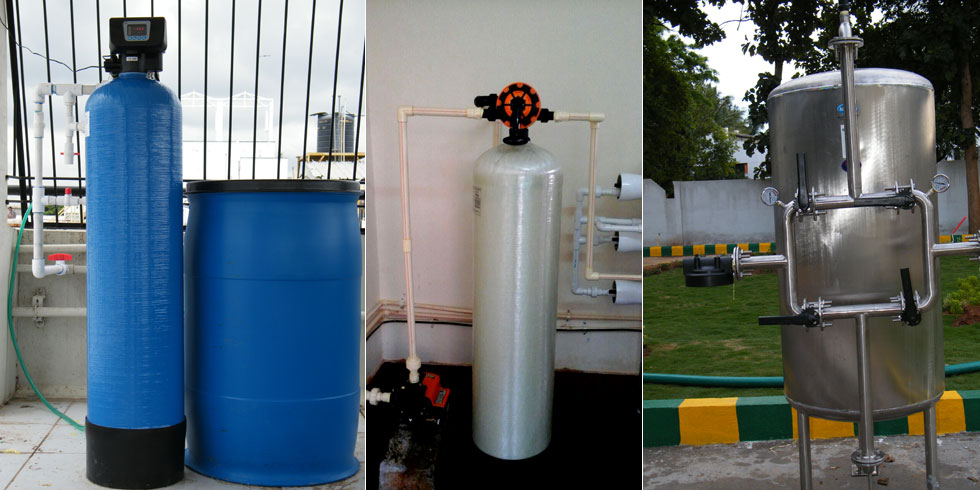
When water is hard, it can clog pipes, damage your costly bath fittings, damage boilers, heat exchangers, and many other devices. Water softening can prevent these negative effects. Hard water causes a higher risk of lime scale deposits in industrial, commercial and household water systems.
Due to this lime scale build-up, pipes are blocked and the efficiency of hot boilers and tanks is reduced. This increases the cost of domestic water heating by about fifteen to twenty five percent.
Another negative effect of lime scale is that it has damaging effects on commercial machinery, such as laundry machines, Cooling Water towers, Jacuzzi etc . Water softening using a water softener system expands the life span of each machine. It also contributes to the improved working, and longer lifespan of solar heating systems, air conditioning units and many other water-reliant systems.
What is a water softener?
A water softener is a unit that is used to soften water, by removing the minerals that cause the water to be hard.
WHAT DO WATER SOFTENERS DO?
Gowda’s Ultracare's Water Softeners are specific ion exchangers that are designed to remove ions which are positively charged.
Softeners mainly remove calcium (Ca2+) and magnesium (Mg2+) ions. Calcium and magnesium are often referred to as “hardness minerals”. Softeners are sometimes even applied to remove iron. The softening devices are able to remove up to five milligrams per liter (5 mg/L) of dissolved iron and can operate automatic, semi-automatic, or manual. Each type is rated on the amount of hardness it can remove before regeneration is necessary. Commercial water softeners collect hardness minerals within its conditioning tank and from time to time flushes them away to drain.
When an ion exchanger is applied for water softening, it will replace the calcium and magnesium ions in the water with other ions, for instance sodium (SALT). The exchanger ions are added to the ion exchanger reservoir as sodium salts (NaCl).
How Often Should One Add Salt To a Softener?
Salt is usually added to the reservoir (Salt Tank) during regeneration of the softener. The more often a softener is regenerated, the more often salt needs to be added. Usually water softeners are checked twice a month and to guarantee a satisfactory production of soft water, the salt level should be kept at least half-full at all times.
When does a softener resin need replacement?
When the water does not become soft enough, one should first consider problems with the salt that is used, or mechanical malfunctions of softener components. When these elements are not the cause of the unsatisfactory water softening, it may be time to replace the softener resin, or perhaps even the entire softener.Through experience we know that most softener resins and ion exchanger resins last about twenty to twenty-five years.
Can salt enter The drinking water?
No. Salt's sole purpose in your water softener is to regenerate the resin beads that actually take the hardness out of your water. This exchange does not make your water taste salty or significantly increase your sodium intake.
APPLICATIONS
- Hotels, Restaurants and Instructions
- Residential Whole House Purpose
- Boiler feed water-using and Cooling Water Towers
- Dairy and food products
- Laundry Applications.
- Industrial Purpose
- Whereever soft water is required


